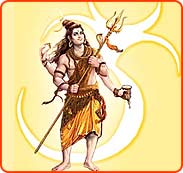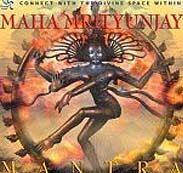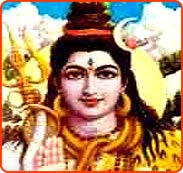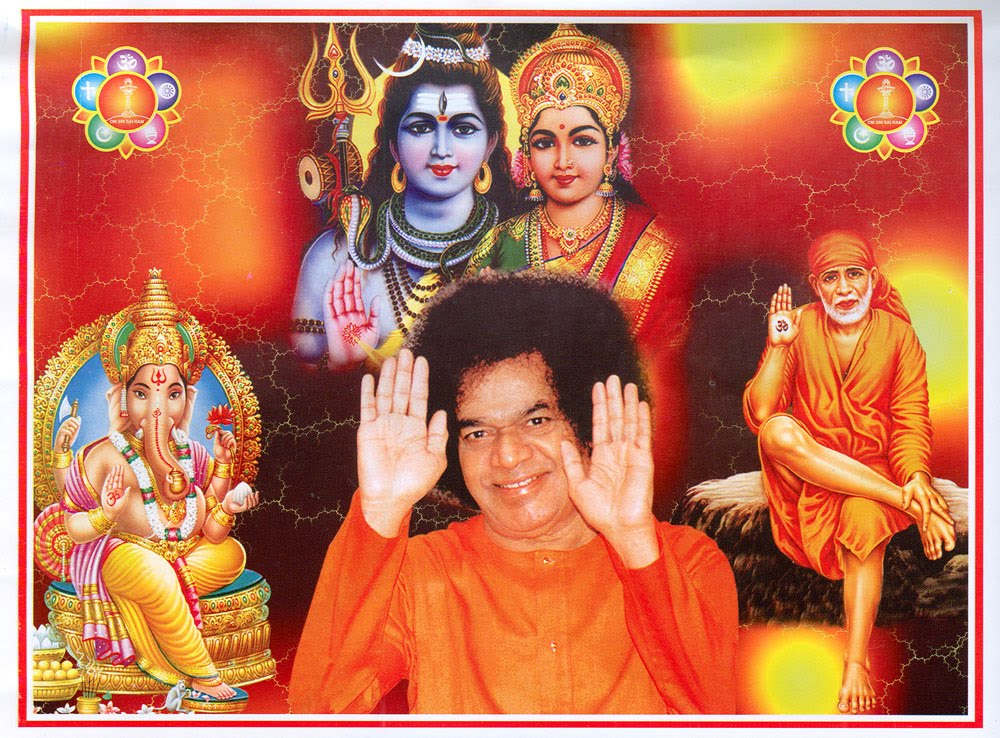Shiva Prayer
| |||||||||||||||||||||||||||||||||||||||||||||||||||||||||||||||||||||||||||||||||||||||||||||||||||||||||||||||||||||||||||||||||||||||||||||||||||||||||||||||||||||||||||||||||||||||||||||||||||||||||||||||||||||||||||||||||||||||||||||||||||||||||||||||||||||||||||||||||||||||||||||||||||||||||||||||||||||||||||||||||||||||||||
Shiva Tandava Lord Shiva is also known as Nataraj, the Dancing God. This divine art form is performed by Lord Shiva and his divine consort Goddess Parvati. The dance performed by Lord Shiva is known as Tandava. Shiva's Tandava is a vigorous dance that is the source of the cycle of creation, preservation and dissolution. Tandava depicts his violent nature as the destroyer of the universe. Lord Shiva is also known as Nataraj, the Dancing God. This divine art form is performed by Lord Shiva and his divine consort Goddess Parvati. The dance performed by Lord Shiva is known as Tandava. Shiva's Tandava is a vigorous dance that is the source of the cycle of creation, preservation and dissolution. Tandava depicts his violent nature as the destroyer of the universe.Characteristics of Tandava Dance According to scholars, 'Characteristics of the Tandava Dance' have been described in the fourth chapter of Bharat Muni's Nata Shastra, which is referred to as fifth Veda and an expression of Lord Shiva's eternal dance - Tandava. It says that Shiva's Tandava is embellished with 108 karanas and the 32 anghaharas - the composite parts of the dance. Bharat Muni further says that Lord Shiva conceived the dance, as he was very much fond of dancing every evening. Shiva further mentioned that 108 karnas included in tandava could be employed in the course of dance, fight, and personal combats and in other special movements like strolling. Types of Tandava Some scholars believe that there are seven different types of Tandava. The tandava performed with joy is called Ananda Tandava and that which is performed in violent mood is called Rudra Tandava. The other types of tandava identified are Tripura Tandava, Sandhya Tandava, Samara Tandava, Kaali Tandava, Uma Tandava and Gauri Tandava. However, there are few people who believe that there are 16 types of Tandava. Significance of Shiva's Tandava Nritya According to religious scholars, the cosmic dance of Shiva, called 'Anandatandava,' meaning, 'the Dance of Bliss' symbolizes the cosmic cycles of creation and destruction, as well as the daily rhythm of birth and death. The dance is a pictorial allegory of the five principle manifestations of eternal energy - creation, destruction, preservation, salvation, and illusion. According to learned scholar, Coomerswamy, the dance of Shiva also represents his five activities namely,
Lasya The dance performed by Goddess Parvati is known as Lasya. In Lasya, the movements are gentle, graceful and sometimes erotic. Some scholars call Lasya, the feminine version of Tandava. Lasya is of two kinds - Jarita Lasya and Yauvaka Lasya. According to the Puranas, Shiva dances a wild and vigorous (tandava) dance in the cremation grounds at night but dances a soft and graceful (lasya) dance in the tranquillity of the twilight. | |||||||||||||||||||||||||||||||||||||||||||||||||||||||||||||||||||||||||||||||||||||||||||||||||||||||||||||||||||||||||||||||||||||||||||||||||||||||||||||||||||||||||||||||||||||||||||||||||||||||||||||||||||||||||||||||||||||||||||||||||||||||||||||||||||||||||||||||||||||||||||||||||||||||||||||||||||||||||||||||||||||||||||
| |||||||||||||||||||||||||||||||||||||||||||||||||||||||||||||||||||||||||||||||||||||||||||||||||||||||||||||||||||||||||||||||||||||||||||||||||||||||||||||||||||||||||||||||||||||||||||||||||||||||||||||||||||||||||||||||||||||||||||||||||||||||||||||||||||||||||||||||||||||||||||||||||||||||||||||||||||||||||||||||||||||||||||
Maha Mrityunjay Mantra The Maha Mrityunjay Mantra or Lord Shiva Mantra is considered extremely powerful and significant by the Hindus. Also known as the Moksha Mantra of Lord Shiva, chanting of Maha Mrityunjaya Mantra is said to create divine vibrations that heals. Devotees of Lord Shiva further believe that Maha Mrityunjay evokes the Shiva within human beings and removes the fear of death, liberating one from the cycle of death and rebirth. The Maha Mrityunjay Mantra or Lord Shiva Mantra is considered extremely powerful and significant by the Hindus. Also known as the Moksha Mantra of Lord Shiva, chanting of Maha Mrityunjaya Mantra is said to create divine vibrations that heals. Devotees of Lord Shiva further believe that Maha Mrityunjay evokes the Shiva within human beings and removes the fear of death, liberating one from the cycle of death and rebirth. Significance of Maha Mrityunjaya Mantra Devotees strongly believe that proper recitation of the Maha Mrityunjaya rejuvenates, bestows health, wealth, long life, peace, prosperity and contentment. It is said that chanting of Shiva Mantra generates divine vibrations that ward off all the negative and evil forces and creates a powerful protective shield. Besides, it is said to protect the one who chants against accidents and misfortunes of every kind. Recitation of the mantra creates vibration that pulsates through every cell, every molecule of human body and tears away the veil of ignorance. Hindus believe that recitation of the mantra ignites a fire within that consumes all negativity and purifies entire system. It is also said to have a strong healing power and can cure diseases declared incurable even by the doctors. Many believe Maha Mrityunjay Mantra to be a mantra that can conquer death and connect human beings to their own inner divinity.
The Maha Mrityunjaya Mantra The following Maha Mrityunjay Mantra has been taken from the Sukla Yajurveda Samhita III. 60. The Mantra is addressed to Lord Shiva and is a centuries old technique of connecting one to pure consciousness and bliss. Om Tryambhakam Yajamahe Sugandhim Pushtivardhanam | Urvarukamiva Bandhanan Mrityor Mukshiya Maamritat || Meaning: Om. We worship The Three-Eyed Lord Shiva who is fragrant and who increasingly nourishes the devotees. Worshipping him may we be liberated from death for the sake of immortality just as the ripe cucumber easily separates itself from the binding stalk. Explanation: The mantra is a prayer to Lord Shiva who is addressed as Sankara and Trayambaka. Sankara is sana (blessings) and Kara (the Giver). Trayambaka is the three eyed one (where the third eye signifies the giver of knowledge, which destroys ignorance and releases us from the cycle of death and rebirth). Best Time to Chant Chanting the Maha Mrityunjaya Mantra with sincerity, faith and devotion in Bramha Muhurata is very beneficial. But one can also do Maha Mrityunjaya japa anytime in a pure environment with great benefit and discover the happiness that's already within. | |||||||||||||||||||||||||||||||||||||||||||||||||||||||||||||||||||||||||||||||||||||||||||||||||||||||||||||||||||||||||||||||||||||||||||||||||||||||||||||||||||||||||||||||||||||||||||||||||||||||||||||||||||||||||||||||||||||||||||||||||||||||||||||||||||||||||||||||||||||||||||||||||||||||||||||||||||||||||||||||||||||||||||
| |||||||||||||||||||||||||||||||||||||||||||||||||||||||||||||||||||||||||||||||||||||||||||||||||||||||||||||||||||||||||||||||||||||||||||||||||||||||||||||||||||||||||||||||||||||||||||||||||||||||||||||||||||||||||||||||||||||||||||||||||||||||||||||||||||||||||||||||||||||||||||||||||||||||||||||||||||||||||||||||||||||||||||
About godess Parvati is regarded as the power and divine consort of Lord Shiva - the Destroyer. Like her consort Shiva, Goddess Parvati is said to have both mild and terrible aspects
Goddess Parvati is known by different names like Lalita, Uma, Gauri, Kali, Durga, Haimavati etc. Two of her fierce but very powerful forms are Durga (Goddess beyond reach) and Kali (Goddess of Destruction). As the mother of the universe, Parvati is known as Amba and Ambika, which means 'mother'. As Lalita, she represents the aspect of beauty. Appearance of Goddess Parvati When shown along with Shiva, Goddess Parvati has only two hands, the right one holding a blue lotus and the left hanging loosely by the side. When represented independently, Parvati Ma is shown with four hands, two hands holding red and blue lotuses and the other two exhibiting the varada and Abhaya mudras. Goddess Parvati has a charming personality. Married women adore Parvati for her happy married life. Picture of Lord Shiva, Parvathi and their sons Ganesha and Kartikeya depicts an ideal example of family unity and love. Parvati as Sati or Dakshayani According to Puranas, in her first incarnation, Parvati Devi was Sati or Dakshayani, the daughter of Daksa and was married to Lord Shiva. Once, Daksha performed a great yagna or sacrifice and insulted Lord Shiva by not inviting him or Sati. Even then, Sati went to attend the yagna. To her great disappointment, Daksha did not acknowledge her presence and did not offer prasad for Lord Shiva. Utterly depressed by the treatment meted out to her, Sati ended her life by igniting herself through the fire of yagna. After the death of Sati, Lord Shiva became very sad and depressed. He renounced the world and went into deep meditation in the snow-covered peaks of the Himalayas. Meanwhile, the demons lead by Taraka, rose from the netherworld and drove devas out of the heavens. The gods sought a warrior who would help them regain the celestial realm. Lord Brahma said, only Shiva can father such a warrior, but he is oblivious of the world. At the persistence of the Gods, Sati agreed to take a re-birth as Parvati, the daughter of Himavan and Mena. It was only after performing intense austerities that Goddess Parvathi succeeded in pleasing Shiva and making him accept her again as his consort. The Divine Homemaker With Parvati by his side, Shiva became a family man. Inspired by her beauty, Shiva became the fountainhead of the arts, dance and drama. But he did not abandon his ways as a hermit and continued to meditate. His carefree attitude and his refusal to shoulder household responsibilities sometimes angered Parvati. But then she would come to terms with his unconventional ways and make peace. The consequent marital bliss between Shakti and Shiva ensured harmony between Matter and Spirit and brought stability and peace to the cosmos. Parvati thus became Ambika, Goddess of the household, marriage, motherhood and family. Ten Aspects of Parvati
| |||||||||||||||||||||||||||||||||||||||||||||||||||||||||||||||||||||||||||||||||||||||||||||||||||||||||||||||||||||||||||||||||||||||||||||||||||||||||||||||||||||||||||||||||||||||||||||||||||||||||||||||||||||||||||||||||||||||||||||||||||||||||||||||||||||||||||||||||||||||||||||||||||||||||||||||||||||||||||||||||||||||||||
PLATICAS DE SATHYA SAI BABA
DIOS ES AMOR
LA VOZ DEL AVATAR
SITIOS SAI
miércoles, 29 de febrero de 2012
LORD SHIVA
Suscribirse a:
Enviar comentarios
(
Atom
)


 For the devotees of Lord Shiva here is a collection of Lord Shiva Prayers with meaning! Devotees seeking blessings of Lord Shiva must recite Shiv Prarthana with sincerity and faith.
For the devotees of Lord Shiva here is a collection of Lord Shiva Prayers with meaning! Devotees seeking blessings of Lord Shiva must recite Shiv Prarthana with sincerity and faith. 


















No hay comentarios :
Publicar un comentario